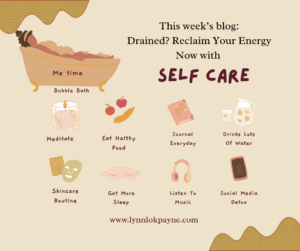
AFFIRMATION: In time, difficult moments can deliver wisdom.
Life gives us all kinds of lessons, but some of our greatest teachings come through loss and failure. No one is immune to suffering, and difficult times carry important lessons if we are open to receiving. Coping with loss is difficult. Navigating dark periods can transform us into stronger, more empathetic, kinder human beings. It is what we do with these hardships that matters.
Each one of us has our own evolution of life, and each one of us goes through different tests which are unique and challenging. But certain things are common. And we do learn things from each other’s experience. On a spiritual journey, we all have the same destination. — A.R. Rahman, Indian composer, writer, producer
After the devastating loss of my husband, I went through tremendous grief, shock, and terrible sorrow. Elisabeth Kübler-Ross, pioneer in Near-death studies, describes the five feelings experienced after an agonizing loss—denial, anger, bargaining, depression, and acceptance.¹ David Kessler, who wrote two books with Kübler-Ross, states in Finding Meaning, there is a sixth stage—meaning.² After the unexpected death of his twenty-one-year-old son, he found meaning in loss. Denial and bargaining were the first two stages of grief that presented themselves to me, followed by depression. First, denying the loss—that Don did not die and this was a horrible nightmare. It was followed by trying to bargain with God for his return. Then depression set in because I couldn’t cope with the loss. Acceptance and meaning did not show up until much later.
Denial helps us to pace our feelings of grief. There is a grace in denial. It is nature’s way of letting in only as much as we can handle. — Elisabeth Kübler-Ross, Swiss-American psychiatrist, author
I couldn’t eat and went into a deep depression, losing more than twenty pounds in a matter of weeks. I was the poster child for what not to do. I was hanging on by a thread, barely surviving. Loss and emptiness consumed me and I felt nothing but grief. Before the fire, I would sometimes wear Don’s sweatshirt or jacket because the scent from his cologne lingered and brought me some solace. But the fire took this small comfort away, along with my home.
My sorrow was so intense it felt as if time had stopped and the world stood still. I couldn’t see beyond my pain. Days dragged on. Eventually time did pass, slowly easing my suffering, and sparks of hope started to peek through. But suddenly, out of nowhere, an intense wave of sadness would hit me. The pain hiding in my heart would unexpectedly rush out anytime, anywhere. I saw a friend at Costco and when she asked me how I was doing, I couldn’t speak—I just started crying. I didn’t know why this question made me fall apart. There were times I understood what triggered an emotion, but then other moments, like this one, I had no clue. I found out that I could not schedule my grief for 2:00 p.m. It had its own agenda.
Living in the rental house during the renovation was not healing. The fire extended my mourning because I had lost the familiarity and peace of being in my own home. My sense of security had vanished with these two life-changing events. My hope was that by returning to our house, I could regain a sense of normalcy and start to heal my pain.
At first, returning home felt like the clock rewound itself to eight months earlier when Don had just died. I would look out the window and expect to see his car pull into the driveway or see him standing at the grill or sitting at his desk. But all I witnessed was the vacant spot in the garage, the unused barbeque, the empty office chair. These were all reminders that he was gone, and I needed to accept it. For me, it was necessary to cope with the loss in my own home. Otherwise, I believed a part of my grief would be never be healed.
Grief’s Dark Shadow – Coping With Loss
Grief starts out as a dark shadow that attaches itself to you. It follows you everywhere and never leaves your side. It is there when you wake up, travels with you throughout the day, and climbs into bed with you at night. It appears in your dreams and awakens your sleep. At first, you can never escape it. It is like a constant companion crushing your heart and squeezing your lungs until you can’t breathe. Eventually its hold diminishes and grief becomes more of a visitor than a permanent resident.
Therapy assisted me in processing the loss. My therapist, Theresa, said, “You put the loss into a little box and just learn to live with it. You don’t ever get over it.” I found this advice to be true, but learning to live with the pain took time. We can try to bury our emotions, but sooner or later it will be necessary to confront them. If we don’t, they will return. I asked myself, Do I want to deal with them now or someday in the future? I decided to face my sorrow. Now, whenever grief hits me, I just let it come—ride the wave, feel the pain, and allow it to pass through me.
I learned that there is no right or wrong way to grieve. Grief is something we all have in common, but everyone experiences it differently. If we know someone who is going through an extended period of loss, we should never think they should be over it by now. No two losses are the same and each loss is mourned and coped with in its own unique way. Even though we can support another through this dark time, in the end, it is an individual experience—it cannot be fixed by someone else.
Grieve in a manner that feels right and aids in healing. Be patient and allow time to experience the grief. Feeling my emotions slowly helped me heal by allowing me to accept, process, and understand my new, different life without being completely swallowed up by grief. In a New York Times article “Understanding Grief,” a bereaved mother said, “You never ‘get over it,’ you ‘get on with it,’ and you never ‘move on,’ but you ‘move forward.’ ”³ And for some, it’s just moving through.
I am here to say that, with time, healing can occur. And everyone’s timeline is unique. There were moments, years after the loss, that my daughter felt the heavy grief of losing her dad. As my therapist explained, “When a parent is not doing well from a loss or divorce, a child may hold their pain in because they don’t want to make their parent feel worse. It may be a year or two later when their grief or anger starts to show.” I learned to be patient and honor my daughter’s grieving time.
Loss and Coping Come in Many Forms
Grief arises from numerous kinds of loss—losing a job, house, marriage, friendship, or the life you once had. In dealing with a sickness, one can grieve the loss of health. Or we mourn the damage of a cherished place, such as Notre-Dame Cathedral. During Covid-19, the coronavirus pandemic, we ached for normalcy, as we tried to cope with this loss. Grief came from missing the life that no longer existed and longing for what we expected for our future. It takes time to adjust to different or new circumstances.
Grief is in two parts. The first is loss. The second is the remaking of life. — Anne Roiphe, American author, feminist, journalist
It is normal to grieve, so I am not sure why many people seem to hide from it when comforting others. Maybe it is the fear of saying something wrong and adding more sorrow. Or they just don’t know what to say because words cannot adequately express their sympathy. I always found it comforting to hear someone share a favorite memory of Don or express their condolences. But there were times when I just wanted to be in silence. It is okay to sit with someone in silence. Quiet space does not need to be filled with words. Just being with the person can bring comfort. Even a phone call can help. My friend Clarita called me every Friday for a year just to check in. I looked forward to these precious phone calls which gave me a safe space to express my emotions. Many times she just listened as I talked.
After thirty days, most people stopped reaching out, which I understand. Everyone has their own lives to live. They all moved on, but there I was, stranded in my sorrow, coping with my loss. My suggestion for those wanting to aid a grieving person is to touch base with a call, email, or text. And tell them they do not need to respond. It is just to let them know that they are remembered, loved, and not alone. Bring over coffee or dinner, start a meal train, or send a card or flowers. I received a mug with an inspirational message from my friend Tari, and reading these words gave me a little peace each morning. Knowing someone cares can make a difficult time a bit easier to work through.
Grief creates an opportunity to dig down deep inside and connect with our true selves. We can never be the same person we were before the loss. We may become stronger, more resilient, kinder, or have deeper compassion by realizing what is truly important in life. This understanding can happen at any time during the grieving journey. Often, after surviving the pain, we can look back and realize an important lesson was taught.
Grief revealed to me what makes for a full life—love, gratitude, joy, presence. Grief turned into the gift of embracing life.
Coping With Loss
How to cope with loss is an important life lesson. The unexpected death of my husband brought me face-to-face with this difficult teaching. How we navigate and adjust through these transitions can transform us, if we are open to accepting something different.
In the TV show, Grey’s Anatomy, after Dr. Derek Shepherd was killed in a car accident, his wife, Dr. Meredith Grey, said, “Why do bad things happen to good people? People ask that question so often, it’s become cliché, but that’s because bad things do happen to good people constantly. You just have to hope that when it’s your turn, you will know what to do, how to cope, how to persevere. The truth is you don’t know how you will react to your worst-case scenario. None of us do. Not until it happens.”
This show aired a couple years after the death of my husband, and my emotions were still raw. I felt like Meredith was talking about me. I was still learning how to cope, how to persevere. I remember watching the episode bawling—an intense ugly crying where I couldn’t stop. My tender sorrow felt so fresh, as if Don had just died. But when the crying eventually ended, I actually felt a little better. I released some stuck emotions that night and said a big thank you to Grey’s Anatomy.
Meredith’s comment was an aha moment. I believe it’s true that we don’t know how we will react until a situation arises. We may think we do, but until we actually experience it, we don’t. And if the same situation arises again, we may act differently.
It’s a choice whether or not we learn to cope. I’m not saying we manage struggles or loss right away. I certainly did not, and I don’t believe most of us can when the worst blindsides us. But with time, healing starts to emerge and the struggle becomes less difficult. It just takes some effort and courage to move through.
Failure is Coping With A Loss
The experience of failure can be similar to coping with loss. With both of these emotions, the feeling that we will never recover is a common reaction—that life will never be the same. I have definitely experienced my fair share of downfalls, but I would rather take chances than focus on failure. What is the worst thing that could happen? I fail. So what? Thomas Edison famously said, “I have not failed. I’ve just found 10,000 ways it won’t work.” I believe we really do not fail. We just learn how not to do something.
There’s always failure. And there’s always disappointment. And there’s always loss. But the secret is learning from the loss, and realizing that none of those holes are vacuums. — Michael J. Fox, Canadian-American actor, author, advocate
Failure does not need to suck us in and take us down. Yes, there is disappointment at first, but then we can decide to move in a differ- ent direction. Failure can sometimes be a blessing when it reveals we were on the wrong path. It may show us that what we thought we wanted, we don’t really want. Try again, take a chance, and be surprised at the new doors that open for you.
Many of life’s failures are people who did not realize how close they were to success when they gave up. — Thomas Edison, American inventor, businessman, manufacturer
Life Regrets
Grief and dying stir up regrets which cause sorrow and suffering. Bronnie Ware, a palliative nurse, wrote a book, The Top Five Regrets of the Dying,4 where she discusses people’s most common regrets. The first one is having the courage to live our own life and not the life others expect of us. This leaves unfulfilled dreams. The second one is work- ing too hard and missing out on life. All of her male patients stated this. They missed watching their kids grow up and spending time with their partners.
Regret three is not having the courage to express one’s feelings. Suppressing feelings to keep peace with others can lead to resentment and bitterness, which may develop into illnesses. Not speaking our truth is unhealthy. Number four is staying in contact with friends. We often get wrapped up in our busy-ness that we allow our connections to fade away. And the fifth regret is not allowing ourselves to be happy. Many terminal patients did not realize happiness was a choice until it was too late.
My husband had some, if not all, of these same regrets during his lifetime. His top regret was that he worked too hard, spending too many hours in the office, missing out on life. He wished he had stayed more in touch with friends like Bruce, his best friend from high school. These regrets he stated during his life. If there is anything you would like to change, do it before it’s too late. We can’t change the past, but we can make a better future.
Unanswered Questions
Why did my husband have to die so soon? Maybe he had fulfilled his purpose. I do not know. But finding the answers to why we suffer through loss, failure, or regret may be unnecessary. Even when we have the answers, sometimes they don’t bring the peace we hope for. Accepting what is may be enough to cope with the loss. It is not what happens to us, but what we do with it is where the true lessons are found.
Loss has brought me more gratitude for the people and simple things in my life because I now know they can be taken away in an instant. It has also helped me realize that many regrets and worries are unimportant, and this makes them easier to let go. These revelations have revealed that through loss, beautiful wisdom can blossom.
Photo by Ryan Parker on Unsplash
- David Kessler, “The Five Stages of Grief,” Grief.com, Accessed June 3, 2020, https://grief.com/the-five-stages-of-grief/.
- David Kessler, Finding Meaning, Grief.com, Accessed August 27, 2020, https://grief.com/.
- Jane E. Brody, “Understanding Grief,” New York Times, January 15, 2018, https://www.nytimes.com/2018/01/15/well/live/understanding-grief. html.
- Bronnie Ware, The Top Five Regrets of the Dying: A Life Transformed by the Dearly Departing, (Carlsbad: Hay House, 2012).





